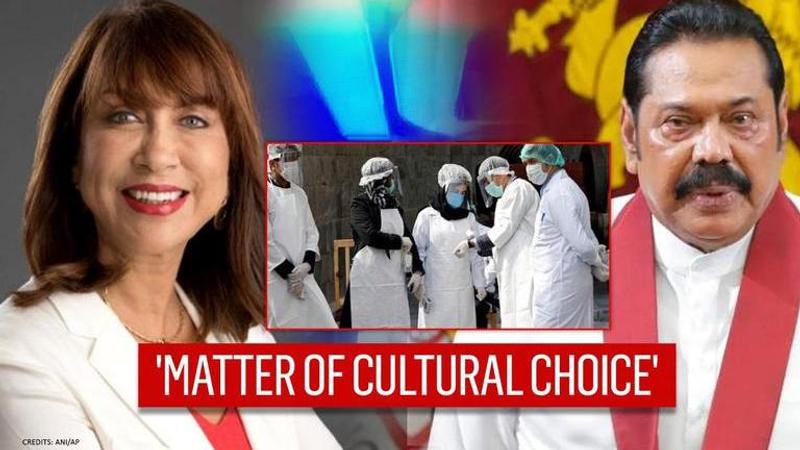Published 19:54 IST, November 13th 2020
UN asks Sri Lanka to ‘revise’ COVID-19 victims’ burial policy, cites WHO guidelines
“The common assumption that people who died of a communicable disease should be cremated to prevent spread is not supported,” UN's coordinator said in a letter.

On November 12, the UN expressed concern over the Sri Lankan government’s COVID-19 victim burial policy and expressed hope that the country “will revisit its policy”. In a letter, UN Resident Coordinator in Sri Lanka Hanaa Singer told Sri Lankan Prime Minister Mahinda Rajapaksa that prohibition of burials of COVID-19 victims was backed by no scientific evidence, and as per WHO’s updated interim guidance on 4 September 2020, cremation should be “a matter of cultural choice”. “The common assumption that people who died of a communicable disease should be cremated to prevent spread is not supported,” read the content of an official letter, cited by Sri Lanka’s local daily Sri Lanka Mirror.
According to sources of PTI, the island country’s Muslim minority population has been protesting the ban of burials for the COVID-19 victims, saying, that the cremation of dead body violated the religious ritual followed with respect to the dead. As per the current guidelines by the Sri Lankan Ministry of Health, cremation was listed as the only method recommended for the disposal of coronavirus bodies. The Sri Lankan government formed a panel of health experts for the advisory on the issue, until then, Sri Lanka’s policy of cremations would be adhered to. However, in the letter, Singer emphasized that across the world, COVID-19 patients who succumbed to the deadly disease were given dignified and safe disposal as per their choice.
“I am following with encouragement recent media reports that the current prohibition of burials of COVID-19 victims in Sri Lanka could be revisited shortly.
In this context, I wish to take the opportunity to reiterate the concerns of the United Nations with the existing Ministry of Health guidelines, which stipulate cremation as the only method for the disposal of bodies suspected of COVID-19 infection,” UN’s singer said.
Negative effect on social cohesion
Further, Singer directed Sri Lankan PM to the WHO’s ‘Infection prevention and control for the safe management of a dead body in the context of COVID-19’ protocols. “Cremation is a matter of cultural choice and available resources,” the UN coordinator said. “I fear that not allowing burials is having a negative effect on social cohesion and, more importantly, could also adversely impact the measures for containing the spread of the virus as it may discourage people to access medical care,” she added. As of November 12, Sri Lanka recorded 15,723 cases of coronavirus and 48 fatalities.
Updated 19:53 IST, November 13th 2020




